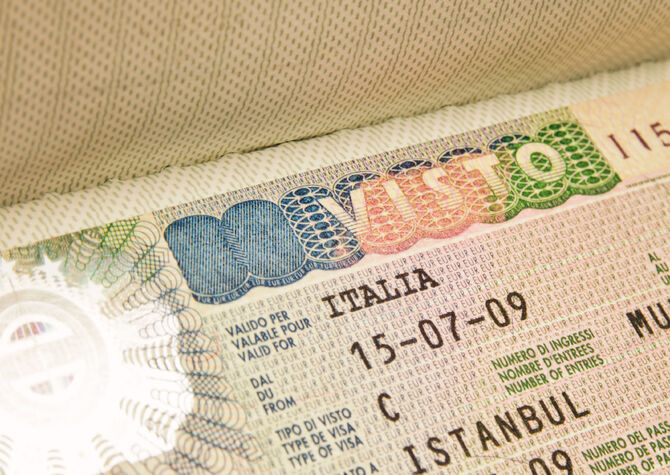A guide to Italy's elective residence visa
Destination service provider Principal Relocation Company explains the main steps involved in obtaining an elective residence visa in Italy.

Applying for Elective Residence Visa
Although they need to be double-checked each time with the relevant Consulate in country of residence, all applications for this type of visa generally require the following documents:- Passport or official travel document valid for at least 3 months beyond the validity date of the visa requested. The passport must have a blank page available for the visa to be affixed.
- Visa application form to be signed by applicant in the presence of a Consular Officer.
- One recent passport photograph (2x2 inches in size, full face, front view, color).
- Proof of permanent residence in the country of origin.
- Proof of support: original financial statements from banks, investment/brokerage firms, Social Security, etc., indicating current balances. Please note that the latter cannot be derived from current employment or other work activities; i.e., you cannot finance your residence in Italy through work. In addition, please note that these account balances must be more than substantial and must provide for continuous growth.
- Proof of housing availability in Italy: rental agreements, proof of ownership (title deed), sometimes a government certificate of adequate housing.
- International medical insurance valid in Italy.
- Certificate of good conduct (Police record) issued by the local Police authority or by the FBI field office is required (only occasionally).
- Certified marriage certificate and birth certificate of spouse/children
Related articles:
- Italy – New Quota Decree Published
- Corporate Relocation in Europe
- Europe tries to put a brave face on Italian defeat
Applying for a Permit of Stay
Once the visa is obtained and within the first 8 days after arriving in Italy, applicants will have to declare their presence and apply for a permit of Stay at the Post Office.The Declaration of Presence (Dichiarazione di Presenza) may be obtained in one of the following three ways:- For those who arrive from non-Schengen countries, the entrance stamp in the passport is equivalent to a declaration of presence and grants legal right to stay in Italy for up to 90 days for tourism, study or business reasons.
- For those who arrive from Schengen countries (Austria, Belgium, Denmark, Finland, France, Germany, Greece, Luxembourg, Netherlands, Portugal, Spain, Sweden, Iceland, Norway, Poland, Slovenia, Czech Republic, Slovakia, Hungary, Estonia, Lithuania, Latvia, Malta and Switzerland) and who stay in hotels, bed & breakfasts and other places where the host must register the arrival with the police, are not required to show any further documents. The registration at check-in will amount to a declaration of presence, therefore it is best for the guest to ask for a copy of this registration as evidence.
- Those who arrive from Schengen countries and are lodging either with friends or family must go to the Questura (police station) and declare their presence within 8 days in order to comply with the new law. Passport plus photocopy of photo/entry stamp pages will be needed, plus a form issued by the Questura.
- The original declaration of presence, and/or copy of passport entry stamp.
- Application form (Form 209)
- €75 Fee.
- 4 - 6 passport style photos of the applicant.
- Original plus copies of EACH page of family members’ passport(s).
- The applicant’s spouse will need an original or certified copy of the applicant’s marriage certificate duly translated into Italian and legalized by the Italian Consulate abroad or by the Italian Tribunal. Please note that the certificate must be recently issued, as it is valid in Italy for only 6 months after being issued.
- Applicants with children will need original or certified copies of the birth certificates duly translated into Italian and authenticated by the Italian Consulate abroad or the Italian Tribunal. NOTE: Please note that these certificates must be recently issued, as they are only valid in Italy for 6 months after being issued
- Certificate of housing suitability (idoneità alloggiativa).
- International medical insurance.
- Proof of support: original financial statements from banks, investment/brokerage firms, Social Security, etc., indicating current balances.
- Proof of housing availability in Italy: rental agreements, proof of ownership (title deed).
©2024 Re:locate magazine, published by Profile Locations, Spray Hill, Hastings Road, Lamberhurst, Kent TN3 8JB. All rights reserved. This publication (or any part thereof) may not be reproduced in any form without the prior written permission of Profile Locations. Profile Locations accepts no liability for the accuracy of the contents or any opinions expressed herein.
































